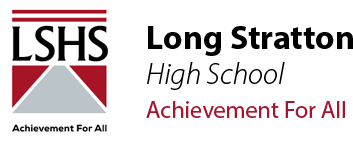Assessment, Feedback and Reporting
High quality assessment and feedback is a vital part of the teaching and learning process at Long Stratton High School. Assessment aims to enable our teachers to identify the knowledge and skills that our pupils have acquired and identify the misconceptions and gaps that have possibly been established. Assessment at Long Stratton will be undertaken during informal and formal processes:
Informal assessment
This is the most common form of assessment and will be used by all teachers every lesson. This is often referred to as “responsive teaching”. Its main purpose is to answer three questions:
- Have pupils learned what I set out to teach them?
- Are there any gaps in their knowledge or understanding?
- Are there any misconceptions that need addressing in order for pupils to make progress?
This could involve teachers using one or more of the strategies below:
- Low-stakes knowledge recall questions at the beginning of lessons
- Questioning
- ‘Hinge questions’ - this involves a question being asked at a key point in a lesson or a sequence of lessons to check for understanding. Pupils’ responses provide the teacher with valuable evidence about what their pupils know, don't know and need to do next.
- Multiple-choice questions
Formal assessment
This is often referred to as ‘summative assessment’ and is used to evaluate pupil learning and academic achievement over a long period of time. This “high stakes” assessment is conducted in test conditions and limited to no more than two (Key Stage 3) or three (Key Stage 4) times a year. The outcome of these assessments are reported home to parents.
Key Stage 3
- Pupils complete an assessment midway through the year and one at the end of the year in each subject. A percentage is reported to parents, alongside the average percentage for the year group in each subject.
- Pupils complete a series of GL Assessment Progress Tests in English and maths. These tests are nationally standardised, providing a meaningful and reliable comparison of our pupils’ performance and progress against their peers across the country. The results of these tests allow us to check that our curriculum is sufficiently challenging and to identify pupils who require additional support.
Key Stage 4
- Pupils complete mock examinations in both Year 10 and 11. The Year 10 exams take place at the end of the academic year, while there are two series of examinations in Year 11. The first one takes place in November and the second one in March. In addition to this, pupils may complete past examination questions for homework or during lessons.
Feedback
Feedback has often been mistaken for ‘marking’, but over recent years there has been an overwhelming body of evidence to show that written feedback in books has limited impact on learning and progress. It also adds significantly to teacher workload for limited gains.
Therefore, feedback at Long Stratton High School will take many forms, including:
- Whole-class verbal feedback
- Small group verbal feedback
- One-to-one verbal feedback
- Re-teaching
- Consolidation exercises
- Extension exercises
Feedback that teachers provide will be precise and focus on specific information that the pupil can use to improve performance.

